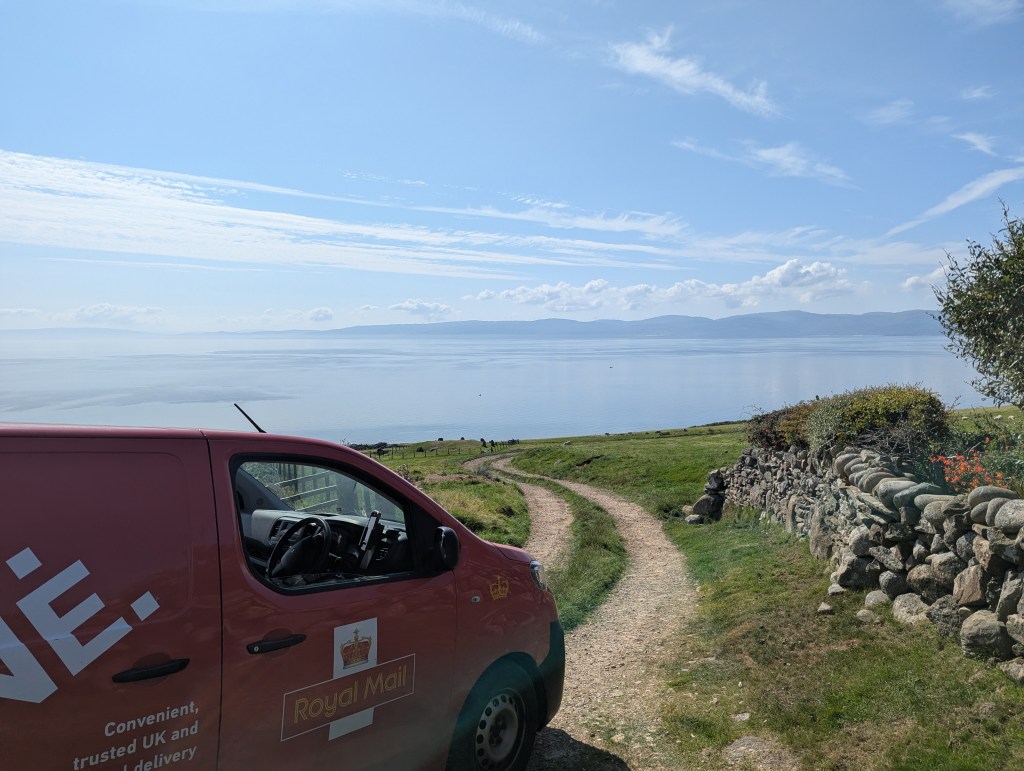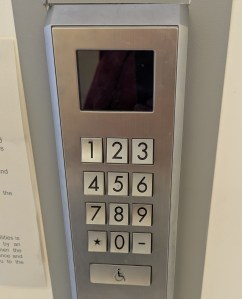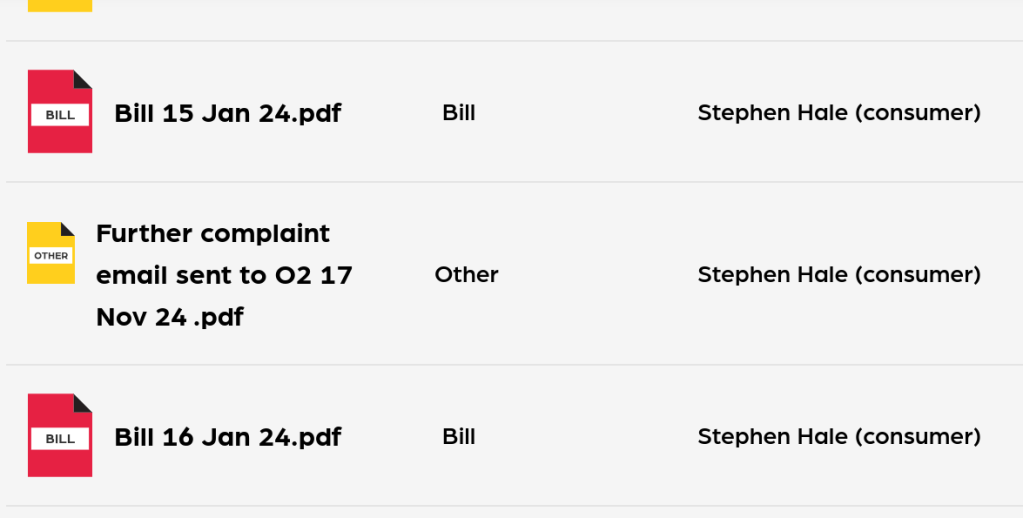I’ve had reasons to feel scared and sad over the last few months. At times it has felt like everything has gone, or is about to go, wrong.
As an exercise to try to snap myself out of dark thoughts, I started adding to a note on my phone, listing times I remember feeling most happy.
I was trying to remember very particular, personal moments of contentment, so that I could shut my eyes and reexperience how I felt.
The result is an incomplete list of snapshots. Short memories of specific vivid feelings, rather than achievements. Quiet moments rather than milestones.
There’s a bias towards some types of memory because of the context in which the list was made.
This list may only be of interest to me. But the process of making it was helpful, forcing me to briefly immerse myself in a different, better emotional state.
A Forest game with Dad on a tandem ticket, listening to Radio Nottingham then Sports Report in the traffic jam on the way out of the Council House car park, whistling the theme tune trying not to laugh.
Climbing to the loch above Thunderguy. Hamish doing the thing where you appear on both ends of a panoramic photo, except I film it instead of take a photograph.
Commentating on toy cars Olympics on the small table in the caravan.
Cooking tortilla and tomato salad for Dominic and Dominic at the Albert Square flat before a Cinimo practice.
Cricket camp with Stanley. Getting there early covered in sun cream. Coaching. Tournaments. The day he took an all-bowled hat-trick.
Doing a bar shift at Kimberley, pouring pints of mixed.
Drinking Guinness with Tom, Beggsy, Trevor and whoever, back at the otherwise empty clubhouse, after a Sunday away match, a bit too late with work tomorrow.
Driving across Nottingham having borrowed Mum’s Fiat Panda, with all the windows down and Radio Trent on, wearing white Reeboks.
Driving hundreds of miles to an away match with Stanley. Arriving 2 hours before kick off and staying at the end. Newcastle, Aston Villa, Forest, Wolves, Man City, Man United.
Driving to Poppy’s house in Cumbria, listening to The Don Declares on cassette.
Easter egg hunt in the garden, Alice has bought 1000 eggs. I hide some carefully, but scatter the rest, then set the rules for Hamish in front of the steps.
Eating a whole artichoke with a pot of olive oil, lemon, vinegar and a boiled egg, with Alice. Alice having the same, except the egg. Watching 2 episodes of 24.
Getting a train to Freemantle for falafel.
Getting piped into the hall before Stanley is made Dux.
Walking round and round St James’s Park rehearsing how to say things to myself.
Going back to Kimberley or Dulwich cricket clubs years later, and having the same conversations with the same people as if I’d never been away. John Parkin, John Lawrence.
Going to every day of the Grand Prix with Stanley. Impersonating people talking boringly about better routes/queuing systems/logistics.
Going to the fifth day of the test match against New Zealand on a whim with Stanley. Moeen Ali taking the catch to win the game.
Going to the nets in Dulwich Park with Stanley really early in the morning. Videoing him playing cover drives and bowling.
Grandma and Grandpa arriving for Christmas in Nottingham with a cardboard box full of Coca Cola and lemons.
Having 2 pints of Red Stripe at The Greyhound with Poppy.
Having cake, a bath and a nap, then running the fines meeting after a day skiing.
Holy Isle day trip with Mum, Dad, Alice and Stanley. Stanley running the length of the island like Alistair Brownlee. Mum sitting on a rock.
Lying on the carpet at the end of the night, listening to Ride.
Making the tiered garden at Martell Road. Sitting in it in the sun on a Sunday morning.
Mowing the lawn.
Mum drives me to a field at lunchtime, I sprint across it, then we have sandwiches.
One v one cricket with Chris against the garage door in Havant, or in the garden in Bognor.
Overrhearing Dad reverting to his school days when talking to Wally on the phone.
Playing Aussie Rules with Chris and Chris on the playing fields and in the swimming pool at the weekend.
Playing cricket with Mark in the car park next to the house in Withington.
Playing for Dulwich at home, Alison brings me a big courgette from her garden, scoring 64, having a shower, Fran and Alistair are there too for some reason.
Playing Slow Dog, Fast Chicken with Hamish in his room.
Practicing Ingenious Friend songs with Malcolm and Wilko in Ken’s tiny rehearsal room.
Reading a novel in a tent, on a train, or in a palaza in Slovenia or Italy, interrailing.
Rock Trip to Dr Montfort Hall to see Pixies. Alison going down to the mosh pit.
Running the 200 meters in the KEEN Cup after Mum persuaded me to.
Seven-a-side football tournament on a sandy pitch in Échirolles for Priory Celtic, a towel over my head to shade the sun between matches. Mum is there.
Sitting round a tree at playtime with Sarah, Emma and Ross. And the school trip to the Isle of White, listening to The Chicken Song.
Sleeper train to Inverness with Alice. No beds, so sat upright dozing, with Sigur Ros on repeat in my headphones.
Stanley blogging about going to see Palace away at Man United. His description of walking back along the canal in the rain after an unlikely win.
Taking Stanley to see Grandpa in Bognor, while Alice visits Kerry.
Talking to the Vietnamese government about the internet in Hannoi. Showing them pictures of Stanley and the allotment.
Three on three football match in the back garden. Hamish, Stanley and Sam v Joseph, Gavin and me. Hamish scores the winning goal.
Two player Fifa career mode with Stanley, as Dortmund. Gareth Bale scoring the winner in the Champions League semi final.
Villa degli Dei in Nocelle with Alice, having bread and jam and coffee in the morning, with a Joe Sacco book.
Walking to the Ritzy with Alice, drinking a bottle of Becks in the bar before a film.
Wandering through the red light district in Amsterdam with Stanley.
Watching a cricket match sat on a bench at Kimberley (or anywhere) with the sun on my face and tightly cut grass under my feet.
Watching Sperts Porsonality of the Year and getting a text from Matt Jaffa about the length of the applause.
Water fight on the last day of school. Getting Stanley from the top window in Martell Road. Later, being careful not to get Hamish too much in Murray Crescent.
Working an evening shift at The Lavender. Poppy comes in on her way back to Oval after a shift at Oddbins.
Wrestling with Stanley on his bed in West Norwood. Him doing the “ABERDEEN” move.







